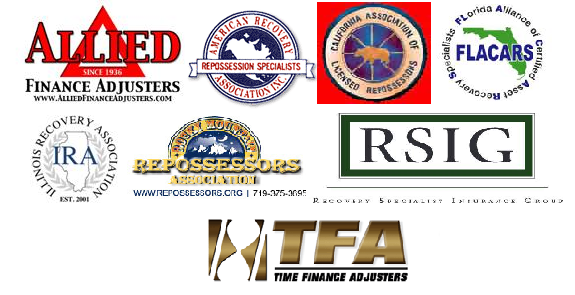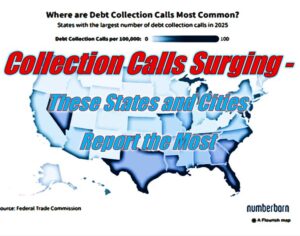A Letter to Lenders and the Repossession industry
Press Release
In the face of great adversity, people will ultimately find a way to come together. Coming together does not necessarily mean that we will always agree, what it does mean, however, is that we will agree to collectively discuss our ideas – allowing each and everyone the opportunity to speak and be heard.
From this important, but assuredly not always a simple concept, we want to introduce the Council of Repossession Professionals to the repossession industry. This Council is established to promote professionalism in the repossession industry, to address industry concerns and to offer a collective voice on the issues that our industry continues to face.
The time of the quiet grumblings of just a few are gone as more and more within our industry begin to stand up in defense of their own businesses and the entire industry. The repossession industry needs a safe haven where their ideas and concerns can be expressed with a collective industry voice without fear of lender / client retaliation.
Recently, a member of our industry spoke out to his client regarding his concerns about their decision to stop working directly with repossessors. He expressed his concerns about what, in his opinion, is an unsafe and unjust forwarding model and his concerns were then shared in a public forum where many applauded his courage to speak out. Unfortunately, his statement shared in a public forum as a guest editorial, was swiftly silenced with the threat of legal action by the forwarder. This, in our opinion, is completely unacceptable.
The repossession industry has changed dramatically since many of us started in it, with the most dramatic changes being for the past 10 years as advances in technology and most recently government oversight have changed how business is to be done. Generally speaking, while resistant to some of the changes, the industry has found a way to navigate these changes, but this is becoming more and more difficult.
The challenges facing repossessors today have the potential to greatly change the auto finance industry. These challenges are not just repossessor unwarranted complaints, nor should they be looked at as the grumblings of a substandard group.
Repossessors and specifically the self-help repossession process provide services vital to the economy. Without those services:
- Costs to recover secured collateral would increase due to the increased costs of judicial repossession.
- The time to recover property would increase as the process is slowed by judicial repossession.
- Lenders would be forced to increase costs to their customers, slowing economic progress and reducing consumer confidence.
With these ideas in mind, it is important that the concerns of the repossession industry not fall upon deaf ears.
The Council asks lenders to carefully consider the following when considering any vendor connection other than a direct relationship between lender and repossessor:
- With the increased attention to consumer protection, lenders need to be extremely concerned as to who actually represents them in the actual recovery process; especially because the person in the field is who is face-to-face with the consumer.
- Is the creditor being led to believe there is additional legal insulation provided to them by virtue of using a forwarder? Is the suggestion of “insulation” something that would run cross-grain with the intentions of the CFPB?
- Is there concern that although the agency owners are trained, that others within the organization may not be, including the actual repossessor? The repossession associations work hard to ensure every person to come into contact with a debtor understands the laws and rules that protect a consumer.
- Is the creditor holding the forwarder to the same standards they expect the forwarders to hold the repossesors to? Ultimately the lender is held accountable for the actions of their subcontractors, this accountability cannot be erased by the use of a third party, it simply adds another layer of people that the lender is responsible for.
- Is the creditor verifying that the forwarder has proper insurance coverage for their role in the process?
- Does the creditor understand that the use of a forwarder does not shield them from liability and in some cases reduces their potential protection of the additional insured status due to the lack of a direct relationship between the lender and the repossession service provider?
For the future and betterment of our industry, the Council makes the following suggestions to the repossession industry and asks the members to implement these changes immediately:
- Stop signing contracts without the proper indemnification for your company.
- Don’t sign contracts that over-extend your liability beyond what your insurance coverage allows (i.e. liability regarding loan balance in event of a loss).
- Don’t sign contracts that waive fees associated with services (storage for example), which carry high cost and liability, without compensation.
- Understand your true costs of doing business and charge for your services accordingly. Acknowledge that any and all business is not necessarily good business and know that business at unreasonable rates actually costs you in the long run.
As the lines of communication between repossessors continue to open and come together, while at the same time providing our partners in the lending community an opportunity to learn more about the concerns of our industry, we are able to continue this important dialogue. As a result of these efforts, we feel strongly that our industry will become stronger.












THIS IS GREAT NEWS!!!! I would also suggest that every professional follow and support these suggestions.
I am truly excited that this idea has finally become a reality. I strongly urge all those that deem themselves to be PROFESSIONAL recovery agents to support and follow the suggestions of this council. Thank you to those that put forth the time and effort in making this happen. I also hope this means that when I walk in the vendor room at the next NARS the first booth I see will not be “PAR”!….:)
ANYONE CAN SUE ANYONE. WOULD A FORWARDER REALLY SUE? OVER FREE SPEECH?
We’ve all heard it before, “you can’t say that”, “you will get sued”, “your comment will have an effect upon their stock price”.
Investment analyst’s write articles everyday and their motivations vary. Some are paid to write a positive/negative article about a pubicly traded company. Some hold positions and they hope that naive investors will believe their article and move in a direction that will personally benefit them. Does anyone get sued–NO. Because it is up to the educated investor to determine whether or not the article is believable and will affect the VALUE of the company.
Lets apply the last sentence to PAR and its parent company KAR. What percentage of total revenue does PAR contribute to its parent company? What percentage of total profit does PAR contribute to its parent company? Are these numbers plainly stated in the KAR annual report?
How beliveable is any comment made by a repossessor on a repossession related web site that would cause an educated investor to to dump his stock in KAR? Would an Investment anylist really write a detrimental article on KAR based upon what a repossessor said on a web site such as CU Collector?
WOULD PAR/KAR WANT TO STAND IN A COURT ROOM AND OPEN THEMSELVES UP TO SCRUTINY REGARDING THEIR PROCEDURES AND POLICIES?
LET ME BE THE FIRST TO SAY—BOYCOTT PAR.
NOW SUE ME!!
WHOO HOO !!!
Count me In !!!!
Congratulations to all involved in making this happen. May this only be the first statement in a long and successful coalition of professionals ensuring safety, compliance and prosperity for both lenders and the repossession community. BRAVO!!!